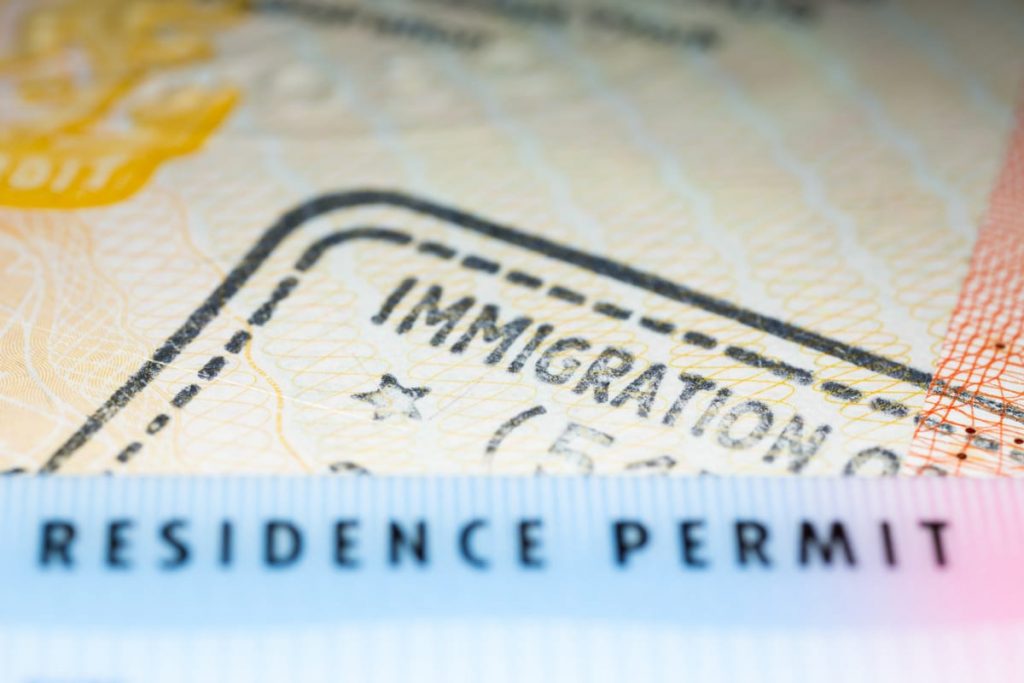The Dutch American Friendship Treaty (DAFT) visa is a residence permit that gives U.S. citizens the right to live and work in the Netherlands as self-employed professionals.
For U.S. freelancers and entrepreneurs, DAFT is a practical way to set up shop in Europe. Unlike many traditional visa programs that require extensive points-based scoring or a pre-established business plan, the DAFT Visa is built on a simple premise: a genuine commitment to starting and running a business in the country. Family members can also join and receive full work rights.
What Is the DAFT Visa?
The story of the DAFT Visa begins in 1956. Following the end of World War II, the Dutch government, seeking to rebuild its economy and attract skilled professionals, initiated the Dutch-American Friendship Treaty.
This treaty established a reciprocal arrangement, allowing U.S. citizens to operate businesses in the Netherlands with relative ease. Originally, the focus was on facilitating trade and attracting American expertise. Over time, the program has evolved to better serve the needs of modern entrepreneurs and the Netherlands’ dynamic and forward-thinking business environment.
Key Differences From Other Self-Employment Visas
The DAFT Visa stands apart from other self-employment visas primarily due to its streamlined eligibility criteria. Unlike many pathways that require extensive business plans or complex points-based systems, with the DAFT Visa, Americans only need to register a business, meet a modest investment rule, and file the right paperwork with Dutch authorities.
The emphasis is on your demonstrable commitment to operating a business here. This approach significantly reduces the time and complexity associated with obtaining residency and lowers the initial investment. It’s a direct route to residency based on your business activity.
Who Qualifies for the DAFT Visa?
The DAFT visa is open only to U.S. citizens. Applicants must plan to work as self-employed in the Netherlands. You don’t need to submit a detailed business plan. The focus is on your demonstrable commitment to running a business.
Investment Threshold
To demonstrate that commitment, you’ll need to make a minimum deposit of €4,500 in a Dutch business bank account. This deposit serves as an assurance that you are serious about establishing a business in the Netherlands.
The funds are held in escrow and will be released upon fulfilling certain criteria, such as registering your business and adhering to Dutch legal requirements. The Dutch Immigration and Naturalisation Service (IND) checks this at the initial application and at renewal.
What Qualifies as “Business Activity”?
A common question is: does the DAFT Visa apply to freelancers? The answer is yes, only if you are engaging in demonstrable business activity. The key distinction lies in your level of activity. For freelancers operating remotely and solely providing services to clients outside the Netherlands, the DAFT Visa may not be the ideal solution.
However, if you’re actively building a business within the Netherlands—whether it’s by establishing a physical workspace, building a Dutch client base, or incorporating your business – then the DAFT Visa can be a perfect fit. It’s about establishing a recognizable, operational business within the Dutch market.
In both cases, the Chamber of Commerce (KvK) registration is required to prove legitimacy.
Benefits of the DAFT Visa for U.S. Freelancers and Entrepreneurs
Low financial barrier compared to other visas
The DAFT visa requires only a €4,500 business deposit, which is far lower than most European entrepreneur visas. This makes it accessible for many freelancers and small business owners. Still, the real costs of relocation—housing deposits, insurance, and daily living—are much higher, and applicants should plan their finances carefully.
Flexibility to run your own business
DAFT allows you to freelance or operate a company in the Netherlands. You are free to work with Dutch clients or continue projects with U.S. clients as long as your activity is registered locally. Renewals, however, depend on showing real and ongoing business activity, so it is important to keep contracts, invoices, and accounts in order.
Long-term opportunities
The initial DAFT residence permit is valid for two years. After renewal, you can extend again and, after five years of continuous legal residence, apply for permanent residence. This pathway offers stability, but only if you maintain compliance with tax, insurance, and IND requirements throughout.
Ability to bring family members
Spouses and children can join you under family reunification. Partners receive full work rights, meaning they can build careers or freelance. Children can attend Dutch schools, which are known for their high standards and affordability compared to U.S. tuition.
How to Apply for the DAFT Visa: Step by Step
1. Open a Dutch business bank account
Before applying, you need a Dutch business bank account. The account must hold the minimum €4,500 investment required under DAFT. In practice, opening the account can be the hardest step. Some banks will not process your application until you have a BSN (citizen service number), which you only get after registering with the municipality. This creates a chicken-and-egg problem for many newcomers. Expats often turn to banks or fintech services with more flexible onboarding while waiting for full registration.
The IND will check this balance at application and renewal.
2. Register with the Dutch Chamber of Commerce (KvK)
Every freelancer and entrepreneur must register their business with the KvK. Most DAFT applicants choose a sole proprietorship (eenmanszaak), which is simple and inexpensive. Registration confirms you are carrying out a real business activity. The KvK automatically shares your details with the Tax Administration, which then issues your VAT number.
In busy cities like Amsterdam or Rotterdam, booking an appointment can take weeks, so planning is essential.
3. Submit your application to IND
Once you have your KvK registration and bank deposit proof, you can apply to the IND. U.S. citizens are exempt from the MVV (entry visa), so you apply in the Netherlands. You’ll need your passport, proof of funds, KvK extract, and bank statements. The IND fee is €405 (2025).
Keep all receipts and documents in order, since IND often asks for clarifications during renewals.
4. Processing time, fees, and practical tips
By law, the IND has up to 90 days to decide. Some cases are approved within weeks, but delays are possible if documents are incomplete. Register with your municipality quickly to secure your BSN, as you’ll need it for banking, insurance, and housing.
Many DAFT applicants face practical delays — such as landlords requiring proof of income or banks requesting Dutch address details — so it helps to have these in motion at the same time.
Taxes and Compliance Under the DAFT Visa
Dutch tax basics for freelancers and entrepreneurs
Once registered with the Chamber of Commerce, you are considered a business owner in the Netherlands. Key obligations include:
- Income tax: In 2025, Dutch income tax for business profits is split into two brackets: 36.97% up to €75,518, and 49.5% above that.
- VAT (BTW): Most services are taxed at 21%, with reduced rates (9% or 0%) for certain goods and services. Freelancers must file quarterly VAT returns if registered for VAT.
- Deductions: New entrepreneurs may qualify for the zelfstandigenaftrek (self-employed deduction) and startersaftrek (starter deduction), but only if they work at least 1,225 hours per year on their business.
U.S.–Netherlands double taxation treaty explained
As a U.S. citizen, you must keep filing your U.S. tax return. The treaty prevents you from being taxed twice on the same income. Typically, you pay Dutch tax on business profits and then claim a foreign tax credit on your U.S. return. For example, if you earn €60,000 in the Netherlands, you would pay Dutch tax first, then offset that amount against your U.S. tax liability. Careful bookkeeping is needed to prove payments in both countries.
Social security and insurance obligations
The U.S. and the Netherlands have a totalization agreement, which prevents double social security contributions. If you are covered in the Netherlands, you must:
- Take out Dutch health insurance within four months of registering. In 2025, basic coverage averages €140–€170 per month, plus an income-based contribution (Zvw) of 5.7% on earnings up to €71,628.
- Pay Dutch social security contributions for pensions, disability, and unemployment unless exempt under the agreement.
- Consider additional coverage such as professional liability and disability insurance, which are not required by law but are common among freelancers.
Living in the Netherlands with a DAFT Visa
Housing challenges and how to navigate them
The housing market in the Netherlands is one of the biggest hurdles for newcomers. In cities like Amsterdam or Utrecht, demand far outstrips supply, pushing prices up and leaving long waiting lists. Landlords usually want to see payslips, BSN numbers, and Dutch bank statements, documents many newcomers don’t have yet. Many expats use short-term rentals (Airbnb, serviced apartments) for the first months while they look for a long-term place.
Be ready with documents: proof of income, bank statements, BSN, and sometimes a guarantor. Exploring secondary cities like Haarlem, Leiden, or Amersfoort can improve your chances of finding housing faster and at a lower cost.
Access to Dutch healthcare
Health insurance is mandatory once you are covered by the Dutch system. You must take out a basic policy within four months of registration. In 2025, basic plans cost around €140–€170 per month, plus the income-related Zvw contribution (5.26% up to €71,628). The basic plan covers GPs, hospitals, and most prescriptions. Extras like dental or physiotherapy require supplementary coverage.
Some newcomers struggle with Dutch-language portals, but many insurers and clinics offer English service in major cities.
Building community and networks
Integration is more than paperwork. Many freelancers report that the hardest part is building a network. Fortunately, the Netherlands has an active expat community, with local business groups, co-working spaces, and events that help freelancers connect. Expat centres in cities like Amsterdam and Eindhoven provide events and workshops.
Municipalities often provide English-language support through expat centres, and national platforms like Iamsterdam offer networking resources. For families, international schools and community events ease integration.
Without a network, relocation can feel isolating, especially in the first year.
Challenges to Be Aware Of
Dutch bureaucracy and documentation requirements
The Netherlands is efficient but rigid. The process is highly sequential: you need a BSN to open a bank account, but often need a rental contract first to get a BSN. Appointments with the municipality, IND, and KvK can take weeks. Keep a folder with contracts, invoices, bank statements, and proof of the €4,500 deposit ready at all times.
Remember, IND may ask for the same evidence again when you renew after two years.
Balancing U.S. and Dutch tax obligations
DAFT is easier than most visas, but taxes are not. You must file in both countries, understand how the double taxation treaty applies, and sometimes manage social security certificates. Without planning, you risk paying tax twice or losing treaty benefits. For freelancers, this often means working with both a Dutch accountant and a U.S. tax advisor.
EMG Supports U.S. Citizens with DAFT Visa and Beyond
Relocating under the DAFT visa is often described as one of the simplest ways for U.S. citizens to live and work in Europe. That is true when compared with other visa schemes, but “simple” does not mean “easy.” As we mentioned, applicants still face housing shortages, sequential bureaucracy, and complex tax obligations across two countries. These are the points where many freelancers and entrepreneurs struggle.
This is exactly where expert support makes the difference. EMG works with U.S. professionals at every stage: from preparing documents to handling renewals, from relocation logistics to cross-border taxes. Below, we answer the most common questions we hear from DAFT clients and show how our team supports them.
Looking to expand your team in the Netherlands?
Ensure compliance and streamline yourinternational hiring with EMG.


